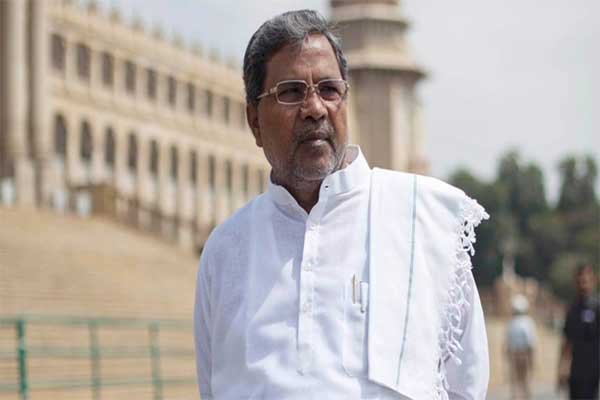Karnataka Chief Minister Siddaramaiah’s recent meeting with officials from the Bangalore Water Supply and Sewerage Board (BWSSB), Bruhat Bengaluru Mahanagara Palike (BBMP), and the energy department sheds light on the pressing water crisis in Bengaluru. With 50% of borewells dried up in the city and lakes facing severe depletion, urgent measures are required to ensure a sustainable water supply for residents.
During the meeting, Chief Minister Siddaramaiah emphasized the gravity of the situation by highlighting that out of 14,000 borewells in Bengaluru, nearly 6,900 have run dry. Additionally, the city’s lakes, once vital sources of water, have almost completely dried up. To put things into perspective, Bengaluru requires 2,600 megalitres per day (MLD) of water to meet its daily needs.
In response to this crisis, the Karnataka government has formulated a plan to address the water scarcity issue. One significant initiative involves providing water to all 110 villages surrounding Bengaluru by June. Siddaramaiah reassured that there’s sufficient water available in the Kabini and Krishna Raja Sagar (KRS) reservoirs to support this endeavor. This proactive approach aims to alleviate the hardships faced by residents in the surrounding areas who are grappling with water shortages.
Furthermore, the impending monsoon, expected in the first or second week of June, offers a ray of hope for the parched city. The arrival of rainfall could potentially replenish groundwater sources and provide some relief to the water-stressed region.
To tackle the immediate challenges posed by the drying lakes and depleting borewells, the Bangalore Water Supply and Sewerage Board (BWSSB) has devised a comprehensive strategy. The civic body plans to refill the drying lakes with treated water at a rate of 1,300 million litres per day. This initiative aims to replenish groundwater sources and restore the ecological balance of these water bodies. Additionally, filter borewells and water plants utilizing innovative technology will be installed near the restored lake beds to ensure a sustainable supply of clean water. Collaborating with the Indian Institute of Science (IISc) in Bengaluru, the BWSSB seeks to implement scientifically-backed solutions to address the water crisis effectively.
Moreover, the Karnataka government has taken decisive action to curb the influence of the water mafia and ensure equitable distribution of water resources. By taking control of thousands of private water tankers, the government aims to regulate the supply of water from sources outside the city. The deployment of unused milk tankers to ferry water underscores the government’s commitment to finding innovative solutions to the pressing water scarcity issue.
While these initiatives represent significant strides in addressing the water crisis in Bengaluru, sustained efforts and proactive measures will be required to ensure long-term water security for the city and its surrounding areas. The government, in collaboration with various stakeholders, must prioritize water conservation, invest in sustainable water management practices, and explore alternative water sources to mitigate the impact of future water shortages.
The water crisis in Bengaluru demands urgent attention and concerted efforts from all stakeholders. By implementing innovative solutions, leveraging available resources, and adopting sustainable practices, the Karnataka government can effectively address the water scarcity issue and ensure a reliable water supply for the residents of Bengaluru and its surrounding regions.
